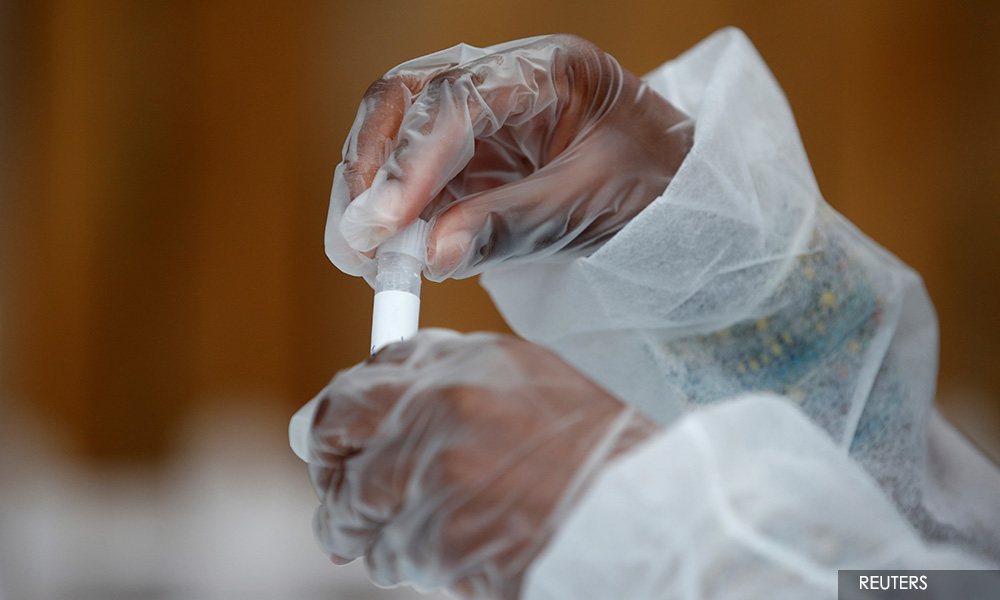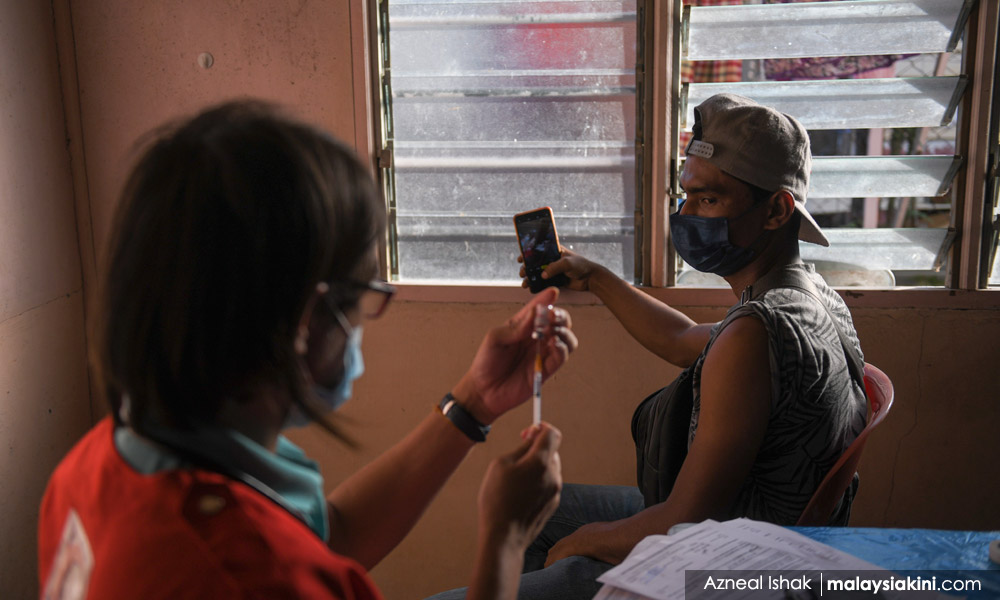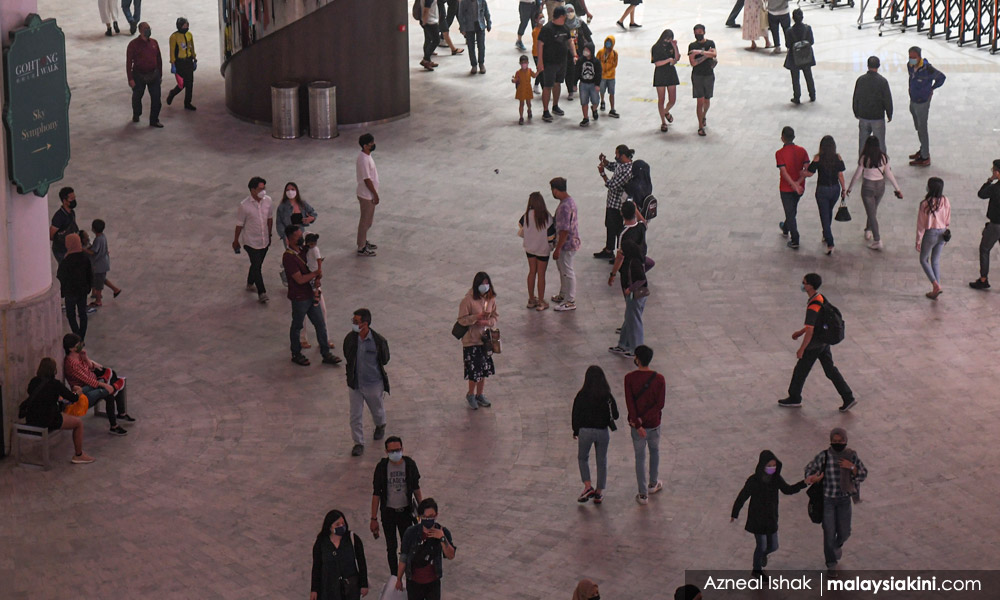The Health Ministry last week unveiled a set of new guidelines to provide clarity on who should get a Covid-19 test, when to get tested and who should pay for the test.
Dubbed the National Covid-19 Testing Strategy (NTS), it is part of the government’s efforts to facilitate the safe reopening of Malaysia’s social and economic life amid the pandemic.
The document (see at the bottom of this article) is currently available in English and Malay languages from the Health Ministry’s website.
Large parts of the document echo the National Security Council’s (NSC) previous Covid-19 standard operating procedures under the National Recovery Plan, but there are also parts of the document that go a step further.
Among others, it encourages people to get self-tested before participating in certain events or activities - particularly when it involves interaction between different households - even if they have been fully vaccinated against the disease.
Examples of such occasions include interstate travel, visiting elderly people, attending large conferences or religious gatherings and attending social gatherings with members of other households, such as birthday parties and weddings.
“It is important to prevent the transmission of the virus to your family members and community while preventing the emergence of clusters by getting tested,” the document explains.
Employers to check workplaces every fortnight
The document also spells out testing requirements for various settings.
For workplaces, the testing rules depend on whether it is classified as a low-risk workplace or a high-risk workplace, based on Annex 25 and Annex 25a of the Health Ministry’s Covid-19 guidelines. Employers are to determine which category their premises are in, using a scoresheet every two weeks.

The score is based on factors such as the vaccination rate of the workforce, whether they can maintain safe physical distancing and whether the ventilation system is properly maintained according to the manufacturer’s instructions.
If a workplace is found to be of low risk, there is no requirement for weekly testing, except for workers who are partly vaccinated or have refused vaccination even though they are eligible. The test should be done under their employer’s supervision and at the worker’s expense.
The workers are also to cover the cost of their own testing if they develop Covid-19 symptoms.
In contrast, fully vaccinated workers and those medically exempt from vaccination only need to undergo testing if they develop Covid-19 symptoms. If they develop symptoms while at work, the employer should cover the cost of the testing.
As for high-risk workplaces, all workers are to undergo weekly testing, regardless of their vaccination status, and an additional test if they show Covid-19 symptoms. The rules for who covers the cost of testing is the same as a low-risk workplace.
Close contacts should also be tested in all cases.
No admission for unvaccinated people at events
At universities, colleges and boarding schools, all students and staff are to undergo testing upon returning from an extended leave of absence, such as a term break or holiday, and when they show Covid-19 symptoms.

In addition, those who are partly vaccinated or have refused vaccination must undergo weekly self-testing supervised by the institution at their own expense.
The rules are similar at secondary schools (for both students and staff), primary schools (staff only) and preschools (staff only), except that the requirement to be tested after an extended leave is not applicable.
For primary schools where students are too young to be eligible for vaccination, 10 percent of the student population should be tested each week, selected on a rotational basis.
For mass gatherings such as football matches, concerts, weddings and conferences, only fully vaccinated people and those medically exempted from testing may attend.
Those medically exempt must perform a Covid-19 self-test under the organiser’s supervision, while fully vaccinated people are merely “encouraged” to perform a self-test. Supervision from organisers is not specifically required for vaccinated people who choose to undergo self-testing.
For certain communities, such as long-term care facilities and shelter homes, Orang Asli villages and communities in remote areas, the testing policy depends on the vaccination rate.

If the vaccination rate is below 80 percent, the community should be tested periodically. Otherwise, they should be tested only if they show symptoms. The frequency of testing, in this case, is not specified.
Amendments coming soon
The NTS was originally slated to be posted on the Health Ministry’s website on Oct 22, but it did not appear when the date came.
The NSC’s Covid-19 SOPs made reference to the document when it was updated on Nov 7, but the NTS itself was not published until Friday last week.
However, Health Minister Khairy Jamaluddin told a press conference yesterday that the NTS is a “living document” that would continue to be updated as Malaysia’s Covid-19 situation evolves, especially following the emergence of the Omicron variant.
In particular, the forthcoming updates will reflect stricter rules for travellers arriving through the Vaccinated Travel Lane arrangement with Singapore.




No comments:
Post a Comment
Note: Only a member of this blog may post a comment.